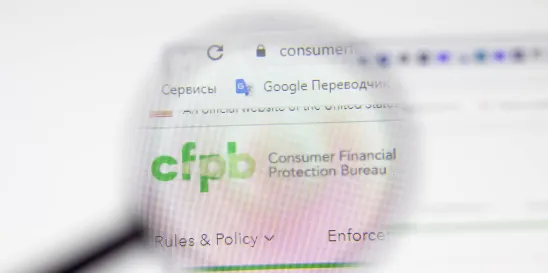| Go-To Guide: |
|
On Oct. 26, 2023, the U.S. District Court for the Southern District of Texas issued a nationwide injunction prohibiting the Consumer Financial Protection Bureau (CFPB) from implementing or enforcing its Small Business Lending Rule, which was crafted to implement Section 1071 of the Dodd-Frank Wall Street Reform and Consumer Protection Act.
As issued, the CFPB’s Small Business Lending Rule requires covered financial institutions to collect and report data on small business loan applications, including applications from minority-owned, women-owned, and LGBTQI+-owned small businesses. It also creates the first comprehensive database of small business credit applications in the United States.
We discussed the requirements of the Small Business Lending Rule in detail in our April 13, 2023 Alert: “Small Business Lenders: CFPB Issues Final Rule on Small Business Lending.” As we noted then, the Small Business Lending Rule creates significant new compliance obligations and requires lenders to make substantial operational changes, to the extent they have not already done so.
The district court had previously issued a narrower injunction that only prohibited the CFPB from implementing or enforcing the Small Business Lending Rule against the named plaintiffs in the case—that is, against the Texas Bankers Association and its members, the American Bankers Association and its members, and Rio Bank.
But after the district court issued that narrower injunction, several other covered financial institutions filed unopposed motions to intervene in the case, and then asked the court to expand the scope of its previously issued injunction.
In response, the district court found that the intervenors were likely to succeed on the merits of their challenge to the Small Business Lending Rule for the same reason that the original plaintiffs were likely to succeed—because the Fifth Circuit has held that the CFPB’s funding structure, by which it requests and receives funding directly from the Federal Reserve rather than via a congressional appropriation, violates the U.S. Constitution’s Appropriations Clause and its structural separation of powers.
The court then found that the intervenors faced a substantial threat of irreparable harms, because they would not be able to recover the compliance costs they are presently incurring, and that the balance of the harms and the public interest factors also weighed in favor of granting the requested injunction, because the “the public interested is served, not harmed, by maintaining our constitutional structure.”
The court issued a nationwide injunction, rather than a narrower injunction protecting only the intervenors, after reconsidering the logic of its earlier ruling granting narrower relief to the original plaintiffs.
It noted that after it issued its original injunction “multiple, additional parties” had intervened requesting relief. And that the statute underlying the rule—the Equal Credit Opportunity Act—was itself intended to require uniform application of the law: “[I]ts very purpose is the equal application of lending laws to all credit applicants to avoid disparate outcomes, and it presumes uniform application to all covered financial institutions absent exemption by the Bureau.” Relying largely on that logic, the court found that to “limit the injunction would be to undermine the goals of preventing inequality in lending and harm to the constitutional structure pending U.S. Supreme Court review of the question at issue.”
The district court’s nationwide injunction will dissolve if the U.S. Supreme Court rejects the Fifth Circuit’s holding that the CFPB’s funding structure is unconstitutional, which it could do in a pending case styled CFPB v. Community Financial Services Association of America (CFSA) (Docket No. 22-448). The Supreme Court heard oral argument in that case earlier this month, which we covered in detail in our October 23, 2023 Blog: “Supreme Court Hears Oral Argument on Constitutionality of CFPB’s Funding.”
Key Takeaways
The district court’s nationwide injunction is a win for small business lenders. While other courts (including this district court) had issued narrower injunctions, the district court’s nationwide injunction is the first order that broadly prohibits the CFPB from implementing or enforcing its Small Business Lending Rule as to any covered financial institution.
If the Supreme Court rejects the Fifth Circuit’s holding that the CFPB’s funding structure is unconstitutional, the CFPB will be required to extend all compliance deadlines for the Small Business Lending Rule “to compensate for the period” in which its implementation and enforcement of the rule was stayed by the district court. Given that, small business lenders should have substantially more time to develop programs to facilitate compliance with the rule—additional time they should use wisely, given the significant new compliance obligations and substantial operational changes the rule requires.




 />i
/>i

